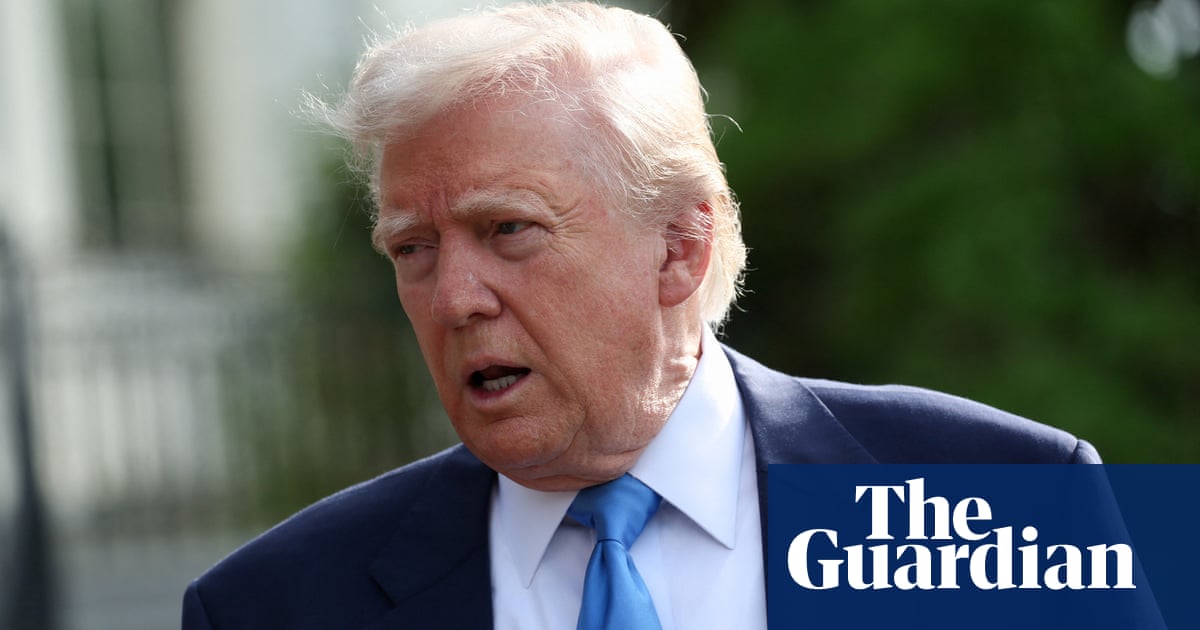Every summer, Cheryl travels to Iowa, from her home in St Kitts. She rents a three-bedroom house for her and her US-based adult children. She usually rents a car, too, and the family go out for dinners and explore local attractions. Cheryl typically spends $10,000 on the trip.
Not this year.
The Trump administration’s high-profile deportations and detentions at the border mean Cheryl, who is originally from Canada, will not be coming to the US. She’s another victim of Donald Trump’s hardline stance, and a symbol of a travel and tourism industry expected to miss out on billions of dollars this year due to the government’s policies and actions.
“I don’t feel safe,” Cheryl, who asked that the Guardian not use her name for fear of reprisals, said. “I love my kids and family more than anything, it’s only feeling unsafe is stopping me. I’m too old and tired to sleep on concrete.”
She isn’t the only one who has concerns – despite Trump’s claim this week that “we treat our tourists great.”
The number of overseas visitors to the US dropped by 11.6% in March compared with the previous year, including a 17.2% decline in people traveling from western Europe, according to US government data. And given much of the visibility about detentions and deportations of travelers came from mid-March onwards, that figure is due to decline even further, which would be devastating to the tourism industry and beyond.
Canadians, unhappy with Trump’s repeated threats to colonise Canada as a “51st state”, have been at the forefront of the decline. Canada’s major airlines have been forced to reduce flights to US destinations including Las Vegas, New York and Los Angeles, as bookings so far in 2025 have plunged, while car visits declined by 32% in March.
This was supposed to be a bumper year for US tourism. After a steep drop-off for the industry during the Covid-19 pandemic, the number of international visitors was expected to finally return to pre-2020 levels. Not any more.
Adam Sacks, president of Tourism Economics, a tourism research group, said that before Trump’s inauguration his group had predicted a 9% increase in international travel to the US in 2025. They are now expecting a 12% drop in international travel.
“You’re looking at substantial losses this year, about a $10bn loss this year in international travel spending relative to last year,” Sacks said.
“It comes down to the basic principle that we’ve seen over decades, which is that travelers can go wherever they want, whenever they want. So antipathy towards a destination will have noticeable effects. It’s highly elastic to those sorts of external factors, and then you add to that the high-profile detainments which got a lot of press, particularly in Europe.”
People in Spain and Germany appear to have been particularly deterred, with 25% and 28% fewer visitors, Travel and Tour World reported. The UK, Germany and other European countries have updated their travel guidelines for people planning to travel to the US, potentially dampening more travel, and it is already being felt in some of the country’s most popular destinations.
Ticket sales for the Statue of Liberty have dropped by 6% so far in April, the New York Post reported, while hotel bookings for New York City hotels later this year are down 20% on last year. In Los Angeles, where the tourism and hospitality industry employs more than 500,000 people, people are equally concerned.
“The way we are perceived globally is we are blowing up not just our economy but everyone else’s economy,” Jackie Filla, president of the Hotel Association of Los Angeles, told the LA Times.
after newsletter promotion
“People don’t think it’s good, they don’t think it’s fair, so why would they go to America?”
On Thursday Trump claimed that the decline in visitors was “not a big deal”, despite the threats to the economy.
“I could see a little bit [of] nationalism at work,” Trump said. Asked if people were “scared” to come to the US, the president said: “No. We treat our tourists great. We’re the tourism capital of the world. There’s nobody – no place like this.”
It’s not just hotels and tour guides that will be affected. Money spent by international visitors filters through a number of different industries: from entertainment to retail, transportation to restaurants. And the decline may not be just restricted to foreign visitors.
Meanwhile the number of people making domestic trips is also expected to decline, Sacks said, as Trump’s trade war threatens to increase prices and cut people’s disposable income. A survey by MMGY, a travel marketing company, 80% of Americans said their travel behavior will change as a result of the ailing economy.
In a sort of grim consolation for those who decry the US’s political divides, Democratic and Republican states are expected to be hit equally hard.
“It’ll affect blue states and red states alike. Florida is highly exposed to the Canadian and European markets. Texas is highly exposed to both European and Latin American markets. And California and New York are highly exposed to international travel,” Sacks said.
“So there’s nowhere to hide.”

 German (DE)
German (DE)  English (US)
English (US)  Spanish (ES)
Spanish (ES)  French (FR)
French (FR)  Hindi (IN)
Hindi (IN)  Italian (IT)
Italian (IT)  Russian (RU)
Russian (RU)  6 hours ago
6 hours ago
























Comments